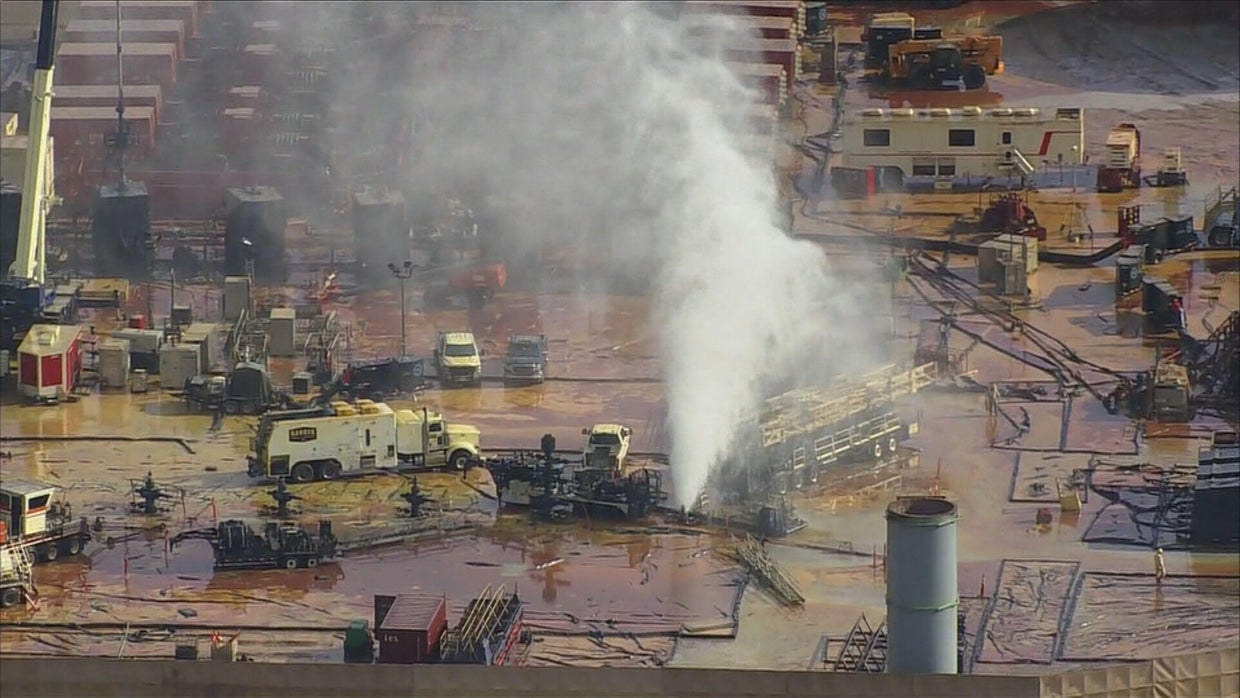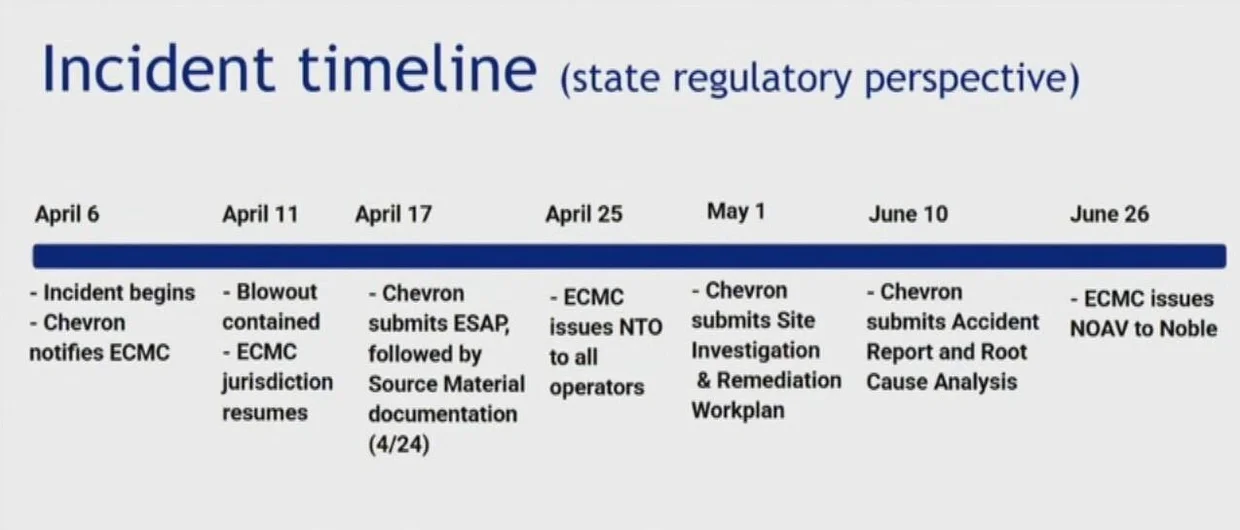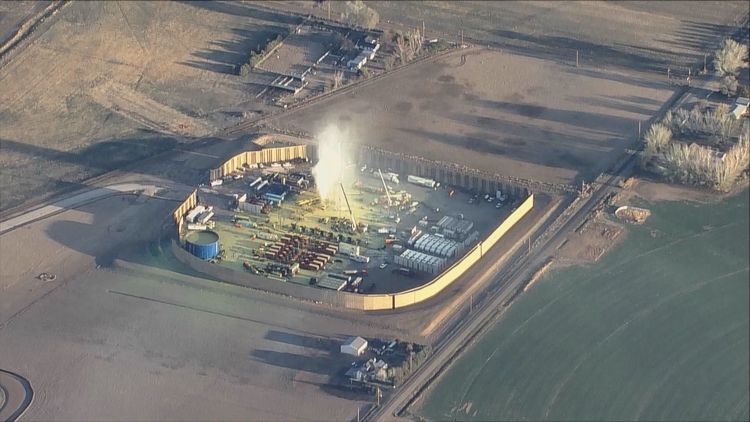A mechanical failure caused a significant well blowout at a Chevron oil and gas pad in Weld County this spring, prompting a prolonged evacuation and ongoing environmental cleanup, state investigators confirmed this week. Colorado investigators said the improper installation of mechanical gear at a Chevron oil and gas pad in Galeton was the cause of a multi-day leak in April.
The Colorado Energy and Carbon Management Commission (ECMC) said a faulty “landing joint”—a critical piece of proprietary equipment—was improperly installed, leading to the April incident at the Galeton site. Chevron’s internal investigation reached the same conclusion.

The blowout began in early April, when a loss of pressure control inside the well resulted in an uncontrolled release of fluids, investigators said during a public briefing. The failure of control barriers contributed to what experts described as a rare but serious well control incident.
As pressure surged, the well head detached and struck a worker on site, breaking his leg, according to the ECMC.
The incident forced the evacuation of nearby residents, including students. While most evacuees have since returned, a small number of residents remain displaced more than two months later.
Chevron continues to remediate the affected area, which includes soil and property decontamination. The company has submitted over 1,000 environmental samples to the ECMC for review.
In a public statement, ECMC emphasized that the operator—Chevron—is fully responsible for ensuring operational safety and integrity at the site.
“ECMC holds the operator of record accountable for the operations conducted on their location, as the control of the operations is solely in their hands,” an ECMC investigator stated.
The agency acknowledged the disruption the blowout caused for Galeton residents and said the event highlights the need for improved safety protocols at oil and gas facilities.
Investigators and regulators are calling for a broader discussion on strengthening safety measures, including reassessing equipment standards, on-site procedures, and physical control barriers.

“Well control incidents are rare,” the ECMC noted, “but this case should prompt a reevaluation of current systems to better protect both personnel and the public.”
In a statement issued to CBS News Colorado, Chevron said the following:
We have received the NOAV from ECMC and are currently reviewing it.
We are actively engaged in comprehensive clean-up and remediation activities. Protecting the safety of people, land, and property remains our highest priority.
We shared with the local community and regulators the results of our Root Cause Analysis, and the safety improvements and operational changes we implemented to help prevent this from happening again.
Our teams have conducted extensive soil sampling and air monitoring, and we remain committed to sharing key data and conclusions with all appropriate agencies.
Since the incident occurred, Chevron has maintained robust air monitoring. At no point in time did we observe levels of air pollutants that pose a threat to human health based on EPA standards.
We understand that rebuilding trust takes time and sustained effort. We remain committed to open, ongoing dialogue and to supporting the residents of Galeton as we move forward – together.

